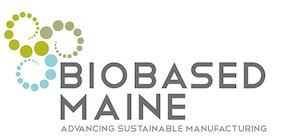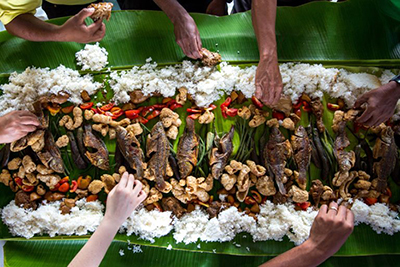Feeding The World in 2050- Biobased Solutions for a Growing Population
By: Marina Bowie
Posted on:01/31/2019 Updated:02/01/2019In Maine, an abundance of wood combined with mature forest and fishing industries, means we have the feedstock and infrastructure necessary to house some of these emerging biobased protein technologies.
 By 2050, the world population is expected to reach between 9 and 11 billion. That’s an increase of 2 to 4 billion from today’s population. This, combined with a projected growth in the middle class, means more people with higher disposable incomes, and an overall increase in demand for protein. Unfortunately, traditional methods of sourcing protein are highly energy and resource intensive.
By 2050, the world population is expected to reach between 9 and 11 billion. That’s an increase of 2 to 4 billion from today’s population. This, combined with a projected growth in the middle class, means more people with higher disposable incomes, and an overall increase in demand for protein. Unfortunately, traditional methods of sourcing protein are highly energy and resource intensive.
To combat the challenge of increased population growth in the face of climate change, several companies are contributing valuable biobased solutions for the world’s future protein needs. These companies know future generations will demand higher quantities of protein, and they’ll demand it be sourced sustainably. The following are three of several companies who have developed technologies to convert renewable biomass into more environmentally-friendly proteins.
The goal of biobased technology company Impossible Foods is to feed the next generations of protein consumers in a way that’s good for people and the planet. Impossible Foods makes “meat” for human consumption entirely from plant materials. According to Impossible Foods, when you eat one, ¼ pound Impossible™ burger, you save the equivalent of a 10-minute shower, 18 driving miles, and 75 square feet of land for wildlife.

The Impossible Foods plant-based meat can be used in anything from tacos and pizza, to breakfast sandwiches, meatballs and burgers. Impossible™ meat is made using potato and wheat proteins, vitamins, amino acids, sugars, binders, and healthy fats. The secret ingredient though, which gives the Impossible Foods plant-based product its meaty flavor and red coloring, is heme. Heme is an iron-containing molecule that carries oxygen in your blood and makes it red, and it is found in both plants and animals. Impossible Foods starts with heme-containing protein from the roots of soy plants. To manufacture their heme, Impossible Foods feeds the DNA from soy plants to genetically engineered yeast. The yeast is then fermented to produce lots of heme for the Impossible™ meat!
While Impossible Foods makes tasty, meaty burgers without the meat, another biobased technology company, Clara Foods, is developing technology that makes animal protein without the animal. With their technology, Clara Foods produces baking products, food and beverage ingredients, nutritional supplements, and even an animal-free egg white! The Clara Foods animal-free egg white has egg-like volume, texture, tensile strength, and foaming capabilities, and thus can be used in a myriad of recipes, which traditionally use eggs from chickens. Clara Foods’ process begins with yeast and sugar, and then uses advanced yeast engineering and fermentation technologies to selectively cultivate a strain of yeast. Finally, the Clara Foods protein product is tailor made for its purpose, whether egg albumen for baking, clean protein, or environmentally-friendly antimicrobials. Because their products are animal-free, the Clara Foods process uses fewer land and water resources, is free of animal cruelty, and egg whites will never contain salmonella or other pathogens, making them healthier for people and planet.
Like Impossible Foods and Clara Foods, biobased technology company Arbiom is committed to safely and sustainably feeding the world with transformative technology. Headquartered in Paris, France with application centers in Raleigh, North Carolina, Arbiom’s technology converts wood into a high-protein ingredient for aquaculture and animal feed. Their technology integrates pretreatment and processing of forestry material into highly fermentable substrates, or torula yeast (candida utilis), to produce a highly digestible, high-protein food ingredient from wood. As part of their effort to tackle the world’s increasing demand for protein, Arbiom leads Sylfeed, a Consortium of industrial partners who represent every stage of the food value-chain. This consortium, including players such as Norske Skog, Arbiom, Processum, Prayon, Matís, Skretting, and Laxá, together help create SylPro, a high-value protein fish feed.
In Maine, an abundance of wood combined with mature forest and fishing industries, means we have the feedstock and infrastructure necessary to house some of these emerging biobased protein technologies. Further, sprouting land-based salmon aquaculture farms in Belfast by Nordic Aquafarms, and in Bucksport by Whole Oceans, suggest a potential to formulate a complete value-chain.
 Sign In
Sign In
 Sign In
Sign In
